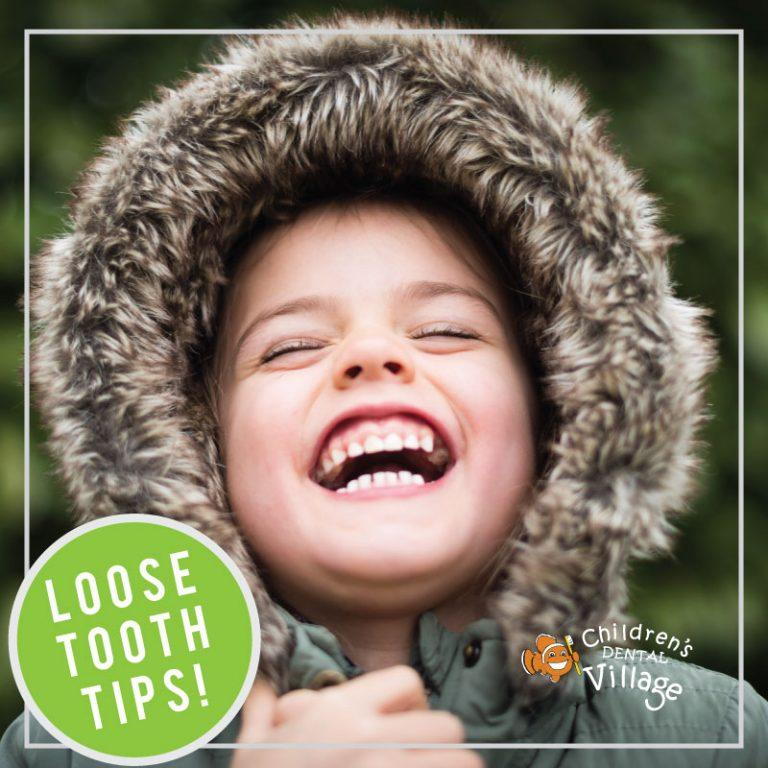
Losing teeth is a normal part of childhood. For kids, it’s an exciting time. It’s a rite of passage on their way to adulthood, and many parents keep the legend of the Tooth Fairy alive by exchanging money for teeth.
Most children start losing their baby teeth around age six and they continue to lose teeth until they’re about twelve.
Sometimes, a loose tooth can be particularly stubborn. It’s loosened in its socket, as osteoclast cells have destroyed the tissue of the root to make way for a new permanent tooth.
But there are times when the tooth just doesn’t want to fall out completely. Parents aren’t always sure whether they should try to extract it or just wait for nature to take its course. Here are some tips to follow when you are struggling with your child’s stubborn loose tooth.
1. Why is it loose?
The tooth is likely loose because bone cells are naturally breaking apart the root to make way for the new permanent tooth underneath it. Teeth can become loose for other reasons. Maybe they fell on their face playing and it loosened from the impact. This can lead to an infection, or to damage to the permanent tooth. If you suspect that your child’s tooth was knocked loose by an accident rather than loosening naturally, you should make an appointment with their dentist.
2. Don’t try to force it
Loose teeth can take a while to fall out completely. When it falls out naturally, there is little to no pain and very little blood. Trying to rip out a loose tooth can cause unnecessary pain by tugging at the sensitive roots. If a loose tooth seems too early, just leave it alone. Children lose their teeth at different rates. Eventually, your child will be able to gently wiggle the tooth until it comes out on its own.
3. Blood is normal
A little blood and pain is normal even when the tooth falls out naturally. Have your child rinse their mouth out with clean water. Teeth that are knocked out prematurely, or that are wiggled out forcefully, may bleed a little more than teeth that fall out by themselves.
4. Brush and floss daily
Brushing and flossing can feel kind of funny after you’ve lost a tooth, but they’re still very important for your child’s health. By the time your child is old enough to start losing their baby teeth, they’re old enough to brush all by themselves. It’s still a good idea to supervise them as they brush, to make sure they’re brushing thoroughly for at least a minute or two
5. Use a cold compress
Loose teeth and empty sockets can sometimes feel sore. A cold compress, like an ice pack or a bag of frozen vegetable, can help numb the area. You can also use an appropriate dose of an over-the-counter medication like Children’s Tylenol to help ease the discomfort.
6. Make sure the Tooth Fairy is free tonight
Many children excitedly put their teeth under their pillow, exchanging it for a small amount of money. The most popular amount to give children per tooth is about a dollar, although some parents may give a little extra for their child’s very first tooth.
Loose Teeth Can Be Stubborn
Sometimes, a loose tooth may stick around for quite a while before it finally falls out. Instead of trying to extract it forcefully, it’s usually better to just let it stay and eventually fall out on its own. If you’re concerned about a particular tooth, it’s a good idea to make an appointment with Children’s Dental Village.
